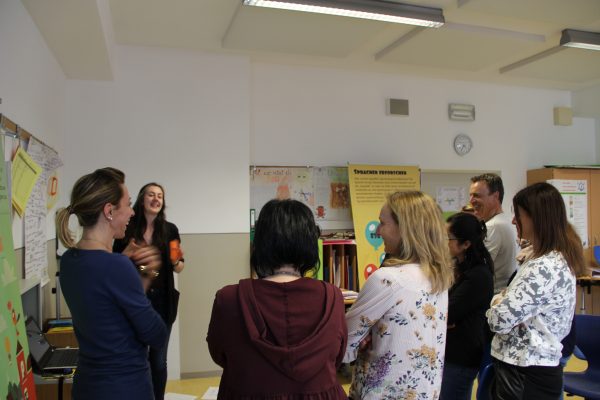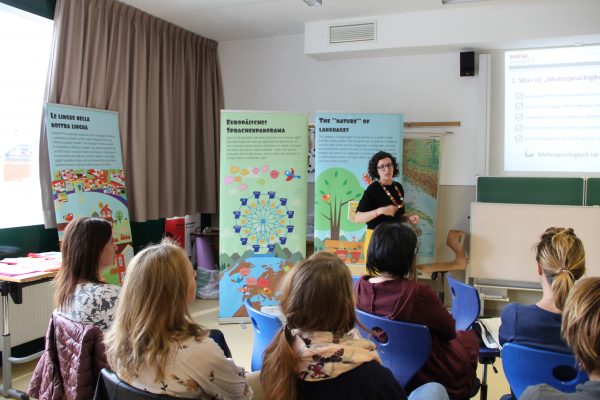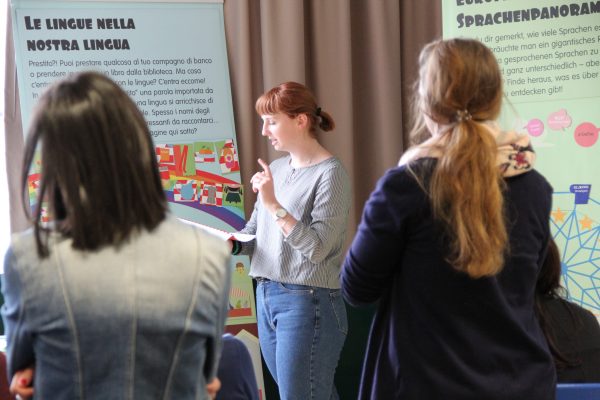Common misconceptions about students with migration backgrounds
What are teachers supposed to do when students arrive in their class whose language levels “aren’t enough”? Or worse – perhaps there are students who have to “start from zero”!
Last Tuesday, teachers spent a whole day exploring the topic during the pedagocical day (Pädagogischer Tag) held at the Middle School Josef Röd in Bruneck. They invited the SMS project team to host workshops and provide scientifically-researched strategies that teachers can use in class.

Our aim is to re-think common misconceptions about the students with migration backgrounds. They are sometimes seen as “lacking” skills, or as “hindering” the progress of the class. But approaching the situation differently, transforms a few “problematic” students into a class which is rich in skills.
Everyone is multilingual. There is no such thing as “starting from zero” (unless you have literally just been born). You might protest and say that your great-aunt lives in the hills and has only ever spoken the same dialect her whole life. While that may be true, she doubtlessly speaks differently to her grandchildren, than she does to their school headmaster. We all possess skills such as switching between registers or using targeted vocabulary for specific situations. What’s more, even a native speaker still needs strategies for learning new words and tackling the unknown. These are examples of skills which are incredibly important in multilingual situations, and that can be worked on together as a class. That way, no child is starting from zero.

“But their language levels just aren’t good enough! Surely focusing on intensive language teaching is the key to success?!”
Yes, and no. The language(s) that the student already knows are also important to consider. Students will already have linguistic knowledge and some level of content knowledge that they have learned through the language(s) they already know. Of course, it is important to develop their knowledge of the target language, but this does not mean that their existing knowledge and skills can’t be acknowledged and built upon in the meantime. Being open to the presence of other languages in the classroom and encouraging the development of the linguistic skills mentioned above will ultimately create a constructive and productive learning environment. In doing so, students with migration backgrounds have the best conditions for learning the target language, and all students in the class have the opportunity to improve their awareness, communication skills, and learn from each other.

